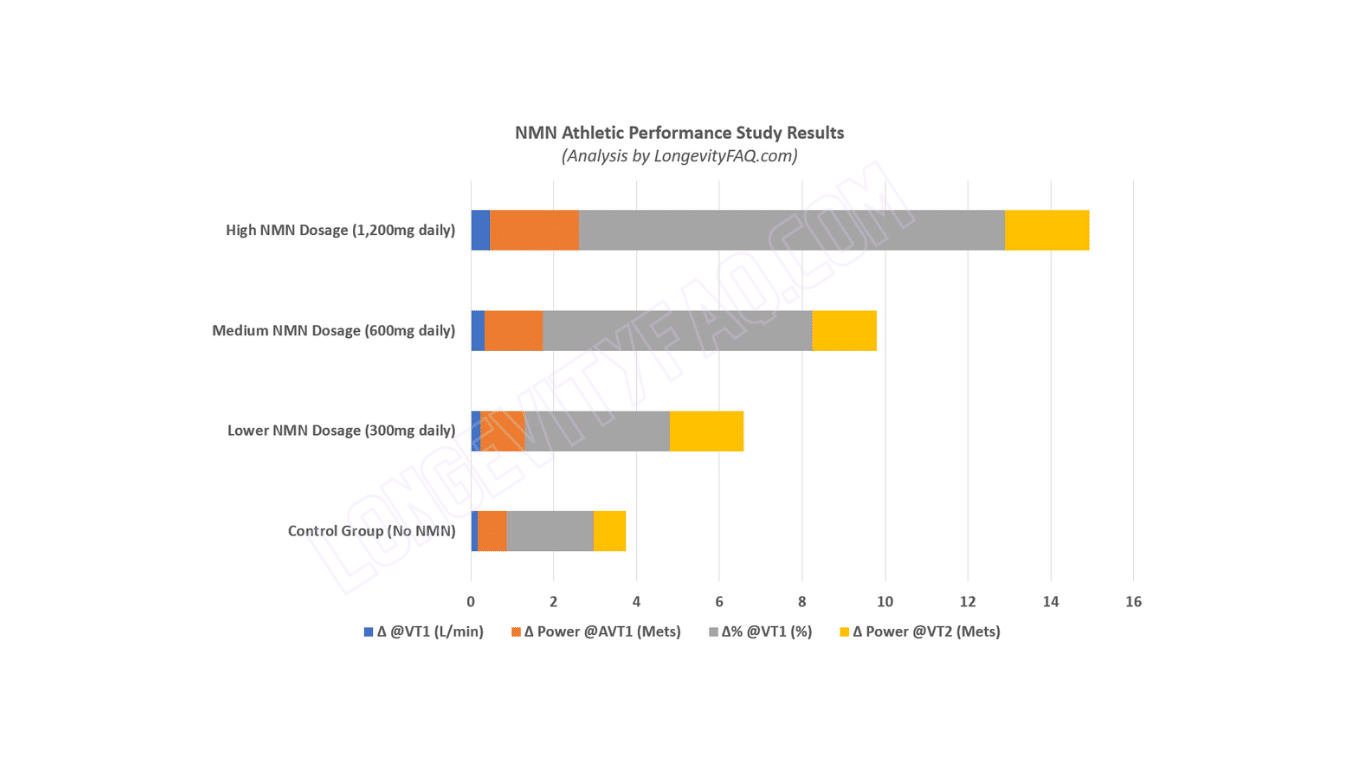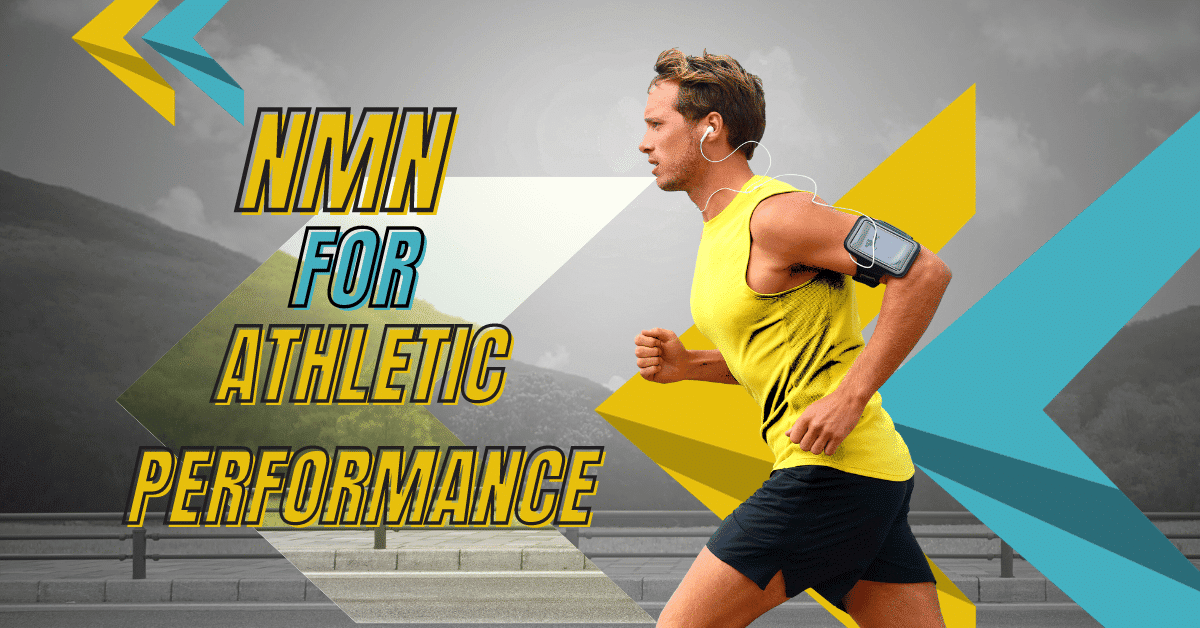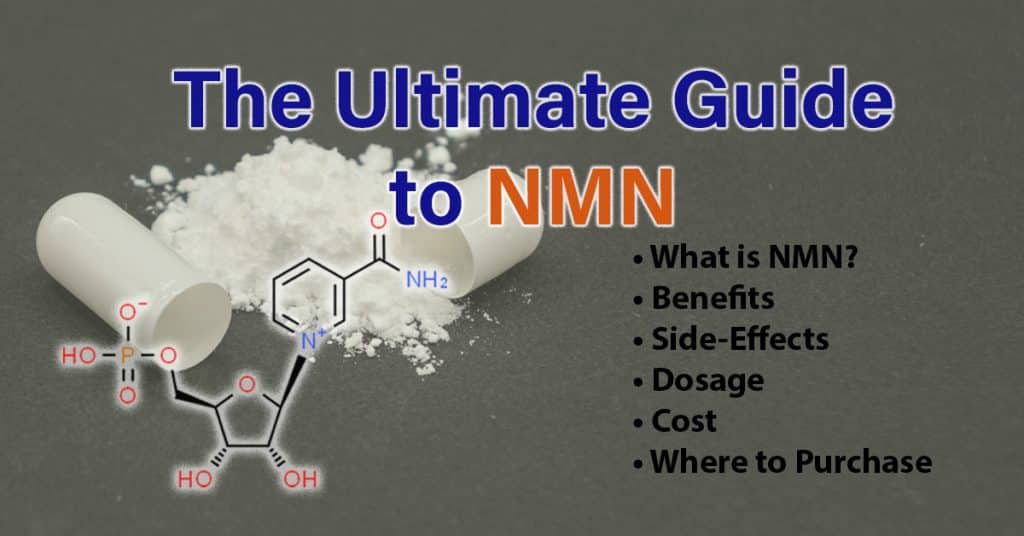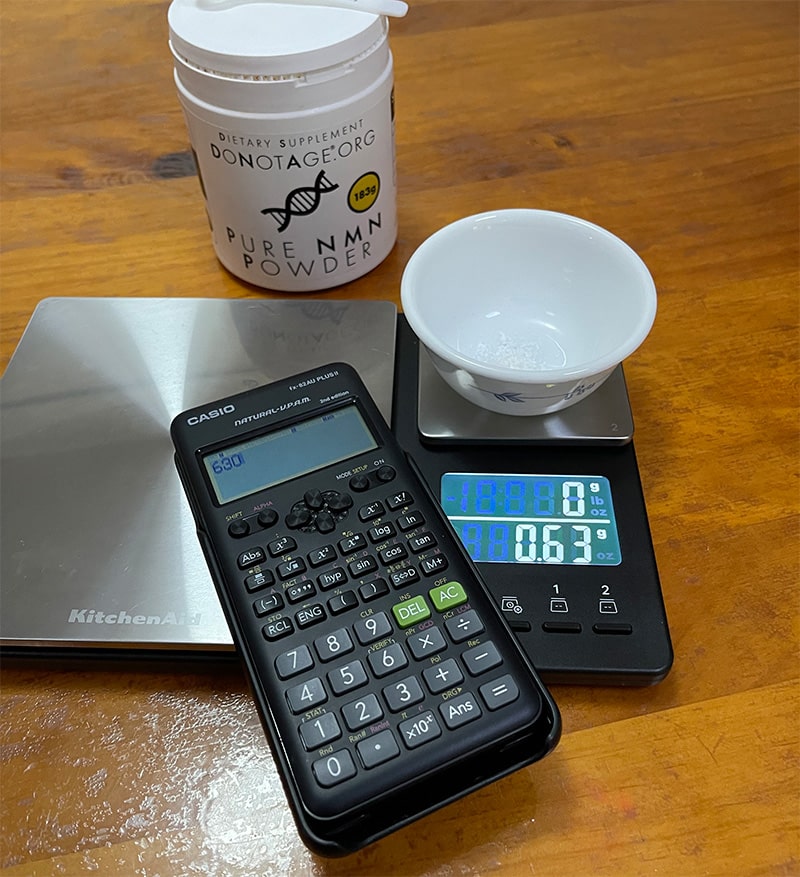Table of Contents
- Key Takeaways
- Understanding NMN Supplementation for Athletic Performance
- NMN’s Impact on Aerobic Capacity
- Key Research Findings on NMN and Athletic Performance
- NMN Dosing Considerations for Athletic Performance
- Potential Side Effects of NMN on Athletic Performance
- NMN for Athletic Performance FAQs
- Do Athletes Take NMN?
- Is NMN Good for Runners?
- Does NMN Affect Exercise?
- Does NMN Increase ATP Production?
- Is Nicotinamide Mononucleotide (NMN) a Banned Substance for Competitive Sports?
- DoNotAge Coupon Code
- The Ultimate NMN Supplementation Guide What are its Benefits, Side-Effects, Dosage & Cost?
- Learn About David Sinclair Supplements Where to Buy & Benefits
- NMN Dosage Calculator
As the athletic community scrutinizes the efficacy of Nicotinamide Mononucleotide (NMN) for enhancing performance, emerging research sheds light on its potential.
This coenzyme precursor is believed to elevate energy levels, optimize recovery, and increase muscle function, making it a sought-after supplement among elite competitors.
Key Takeaways
- NMN supplementation can elevate energy levels and optimize recovery, enhancing overall athletic performance.
- NMN has been shown to boost aerobic capacity in athletes, improving the muscle’s ability to utilize oxygen efficiently and increasing power during exercise.
- Medium to high doses of NMN have significant benefits for oxygen utilization and skeletal muscle energy metabolism.
- It is important to consider individual goals and tolerance levels when determining the optimal dosage of NMN for athletic performance and to monitor potential side effects and long-term impacts on overall health.
NMN’s role in upregulating NAD+ levels directly impacts mitochondrial function, which is critical for sustained athletic output.
It’s not a one-size-fits-all solution; dosing precision matters, allowing athletes to tailor their intake for maximum benefit.
Moreover, NMN’s safety profile supports its use for long-term performance gains.
The compound’s ability to improve cardiovascular efficiency while sparing the heart from excessive strain offers a dual advantage.
Athletes investing in NMN are finding they’re not just pushing the limits but redefining them, with science backing their stride toward peak performance.
Understanding NMN Supplementation for Athletic Performance
While athletes often seek ways to enhance their performance, a study conducted at the Key Laboratory of Exercise and Health Promotion of Guangzhou Sport University has shown that NMN supplementation can significantly improve aerobic capacity and oxygen utilization in trained runners. By strategically supplementing with nicotinamide mononucleotide, these athletes experienced marked enhancements in endurance, underpinned by more efficient oxygen use within their skeletal muscle during exertion.
This advancement is particularly noteworthy for those dedicated to optimizing their exercise training regimens. The study’s rigor—featuring a double-blind, randomized controlled trial—lends credibility to the findings that NMN supplementation and a consistent aerobic exercise program can elevate an athlete’s performance by improving the first ventilatory threshold and power at VT.
Such results underscore the importance of muscle-specific adaptations in endurance sports. The increased aerobic capacity facilitated by NMN supplementation isn’t a consequence of cardiac modifications but rather a reflection of skeletal muscle’s improved proficiency in oxygen utilization. For athletes aiming to master their discipline, NMN emerges as a potent adjunct, transforming their exercise training into a more fruitful endeavor.
My further analysis of the above study into NMN supplementation for runners has positive impacts in the following areas:
- exercise performance
- sports performance
- running stamina
- athletic endurance
- high-intensity training
- exercise performance in aging
- enhancing aerobic capacity
NMN’s Impact on Aerobic Capacity
NMN supplementation has been demonstrated to significantly boost aerobic capacity in athletes by enhancing the muscles’ ability to utilize oxygen efficiently. This enhancement is especially beneficial for amateurs aiming for elite performance levels. Nicotinamide mononucleotide supplementation enhances skeletal muscle function, resulting in a notable upsurge in the capacity for aerobic exercise. By optimizing oxygen consumption, NMN directly improves the ventilatory threshold—the point at which breathing becomes disproportionately heavy during progressive exercise—and power at this critical juncture.
Further, the intake of NMN increases the aerobic capacity in amateur runners, enabling them to perform at higher intensities for extended periods. The increase in skeletal muscle capillary number, courtesy of NMN, facilitates better delivery and utilization of oxygen to working muscles. This biological change is pivotal for endurance athletes who depend on efficient oxygen transport for sustained performance.
Moreover, the dose-dependent nature of NMN’s efficacy implies that precision in supplementation can yield tailored enhancements in endurance performance. When combined with structured exercise training, NMN supplementation amplifies the body’s adaptations, allowing athletes to reach and surpass their aerobic potential.
Key Research Findings on NMN and Athletic Performance
Recent studies have demonstrated that NMN supplementation can significantly enhance athletic performance by improving skeletal muscle energy metabolism and endurance capacity. The research findings are robust, indicating that athletes who integrate NMN into their regimen could experience notable improvements in various performance metrics.
Here are key highlights:
- NMN supplementation has been found to elevate aerobic capacity, particularly in amateur runners, leading to a higher ventilatory threshold—the point during exercise when breathing becomes disproportionately heavy.
- When paired with exercise training, NMN enhances endurance performance more effectively than training alone, suggesting a synergistic effect that maximizes oxygen utilization within skeletal muscles.
- The benefits of NMN on athletic performance are dose-dependent, with medium to high doses showing significant improvements in the body’s ability to absorb and utilize oxygen during prolonged endurance activities.
The main finding of this study is that NMN supplementation during exercise improved first ventilatory threshold (VT1) and power@VT2 without changing the VO2max and that this improvement was dose-dependent.
https://www.ncbi.nlm.nih.gov/pmc/articles/PMC8265078/
Below I crunched the numbers and represented this trials findngs in a more easy to view/consume way, you can see by my below chart the large differences between the control group and the NMN Supplemented groups at the three dosage levels (low, medium and high)

For an explination of what each of the caregoires in the above chart mean, hover over each of them here for my explination of what they mean ∆ @VT1 (L/min), ∆ Power @AVT1 (Mets), ∆% @VT1 (%), ∆ Power @VT2 (Mets) Dont worry I have explained so a seventh grader will understand.
For those seeking mastery in their athletic endeavors, understanding the implications of these findings is crucial. NMN supplementation isn’t just another fad; it’s a scientifically backed method to push the limits of one’s endurance performance potentially.
NMN Dosing Considerations for Athletic Performance
Determining the optimal dose of NMN for athletes requires considering individual goals and tolerance levels, as research suggests that higher doses may yield greater enhancements in endurance and aerobic performance. When tailoring NMN supplementation strategies, one must weigh the potential for improved oxygen utilization against individual responses to varying dosages.
The results of this study reveal that exercise training combining with the supplementation of NMN further lift ventilatory threshold in amateur runners, the benefit is dose-dependent and muscle-related.
https://www.ncbi.nlm.nih.gov/pmc/articles/PMC8265078/
From my analysis of the above six-week study I can see that a dosage of 600 to 1,200 milligram daily significantly augments aerobic capacity in amateur runners. This increase was very significant compared to the 300 milligram per day group. These findings underscore that NMN can amplify the effects of exercise training when consumed at these levels. Athletes targeting peak performance should note that the improvements in ventilatory threshold and exercise capacity were dose-dependent, with the larger doses conferring more substantial benefits. In addition its important to note the performance increase between the 600 milligram and 1,200 milligram was not a big difference, in my opinion the 600 milligram per day dose would make better sense as a starting point, after this I would recommend experimenting with a personalized daily dosage. This wouold be expecially true if you had a larger body frame or weight.
However, athletes must monitor their response to NMN supplementation carefully. While the study reported no adverse effects at doses up to 1,200mg/day in middle-aged runners, personal tolerances can vary. Therefore, starting with a lower dosage and gradually increasing to assess individual tolerance is a prudent approach. I have written about NMN dosing in further detail and recommend reading my article on the recommended dosage of NMN to Optimize Health and Longevity use this article in combination with my NMN dosage calculator that estimates an effective starting dosage of NMN based on bodyweight; this calculator uses the formula and findings of a Japanese study. This is highly recommended for you to get the best dosage of NMN also for exercise performance and for athletes.
For a more general look at NMN as a dietry supplement I recommend reading my Ultimate Guide to NMN Supplementation, where I go over most of the general topics of NMN supplementation for the wider longevity and biohacking community.
Potential Side Effects of NMN on Athletic Performance
Despite its efficacy in enhancing athletic performance, the long-term safety of NMN supplementation warrants scrutiny, as potential side effects remain under investigation. While research indicates that nicotinamide mononucleotide supplementation can be a potent ally for amateur runners and athletes, the quest for peak performance must also consider the implications of consistent, high-dosage intake.
To captivate those deeply invested in optimizing their athletic prowess, consider these critical points:
- Dosage Vigilance: The absence of adverse events at dosages up to 1200 mg/day is reassuring, yet the upper limits of safe consumption over extended periods require further exploration.
- Physiological Effects: Although no immediate cardiac abnormalities have been detected, the long-term impact on heart function and other bodily systems necessitates ongoing monitoring.
- Comprehensive Health Monitoring: Beyond performance metrics, regular health assessments should be integral to any supplementation regimen.
Athletes seeking to master their craft must balance enhancing performance with mindfulness of their overall well-being. As studies continue to affirm NMN’s safety profile, remaining vigilant about side effects and adhering to an evidence-based approach to dosage will ensure that the pursuit of athletic excellence doesn’t come at the expense of health.
NMN for Athletic Performance FAQs
Do Athletes Take NMN?
Athletes often seek supplements to boost their performance, and NMN is no exception. They’re incorporating it to enhance endurance, leveraging its ability to improve oxygen utilization and aerobic capacity.
Is NMN Good for Runners?
Runners may benefit from NMN supplementation, as it enhances oxygen utilization and aerobic capacity, potentially improving endurance and performance when paired with consistent training.
Does NMN Affect Exercise?
Yes, NMN does affect exercise; it enhances athletes’ aerobic capacity and oxygen utilization, improving endurance. When paired with training, these benefits are amplified, offering a significant performance boost for dedicated athletes.
Does NMN Increase ATP Production?
NMN’s role in ATP production isn’t directly established, but it boosts NAD+ levels, which are crucial for cellular energy processes. Therefore, it may indirectly enhance ATP synthesis, aiding in energy-dependent activities.
Is Nicotinamide Mononucleotide (NMN) a Banned Substance for Competitive Sports?
No NMN is not on the current (As of November 2023) World Anti-Doping Agency’s (WADA) Prohibited List.





